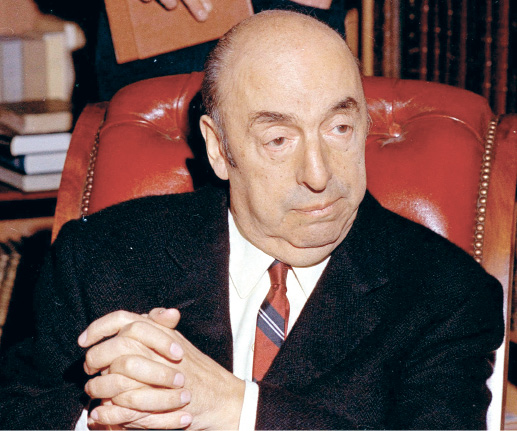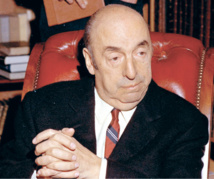Neruda, who had been planning to leave for Mexico to lead the opposition to Pinochet's regime, died hours after the injection. He was 69.
The cause of death was given as advanced prostate cancer, but in 2011 officials agreed to a request from the Chilean Communist Party, of which Neruda was a member, to exhume his body for analysis.
In 2013, Chile's forensic medicine service ruled that "no relevant chemical agents" could be linked to his death.
But a new examination by forensic experts at the Universidad de Murcia in Spain found an unexplainable bacteria, Staphylococcus aureus, in his remains, said judicial officials.
"It is very difficult to establish or exclude the presence of an acute infectious process in the poet's final hours of life," they said in a statement.
"Analyzing the data requires an ample dose of caution to avoid risky conclusions in the absence of additional information, which we lack at this time."
But Neruda's family said the report fueled their suspicions.
"This sustains the reasonable doubt we have about the intervention of a third party," the poet's nephew Rodolfo Reyes told a press conference.
Two other bacteria found in Neruda's body were linked to his cancer, but the Staphylococcus aureus "has no relation with his cancer: that is the news," said Rodrigo Lledo, a lawyer with the Chilean interior ministry's human rights program.
Officials are still awaiting the results of a separate genetic analysis.
Neruda, who won the Nobel Prize for Literature in 1971, died 12 days after Pinochet ousted Socialist president Salvador Allende in a coup.
Investigations have found that the regime used chemical agents to assassinate opponents during Pinochet's 27-year rule.
----------------------------------------------------------------------------------------------------------
The cause of death was given as advanced prostate cancer, but in 2011 officials agreed to a request from the Chilean Communist Party, of which Neruda was a member, to exhume his body for analysis.
In 2013, Chile's forensic medicine service ruled that "no relevant chemical agents" could be linked to his death.
But a new examination by forensic experts at the Universidad de Murcia in Spain found an unexplainable bacteria, Staphylococcus aureus, in his remains, said judicial officials.
"It is very difficult to establish or exclude the presence of an acute infectious process in the poet's final hours of life," they said in a statement.
"Analyzing the data requires an ample dose of caution to avoid risky conclusions in the absence of additional information, which we lack at this time."
But Neruda's family said the report fueled their suspicions.
"This sustains the reasonable doubt we have about the intervention of a third party," the poet's nephew Rodolfo Reyes told a press conference.
Two other bacteria found in Neruda's body were linked to his cancer, but the Staphylococcus aureus "has no relation with his cancer: that is the news," said Rodrigo Lledo, a lawyer with the Chilean interior ministry's human rights program.
Officials are still awaiting the results of a separate genetic analysis.
Neruda, who won the Nobel Prize for Literature in 1971, died 12 days after Pinochet ousted Socialist president Salvador Allende in a coup.
Investigations have found that the regime used chemical agents to assassinate opponents during Pinochet's 27-year rule.
----------------------------------------------------------------------------------------------------------









 Home
Home Politics
Politics











